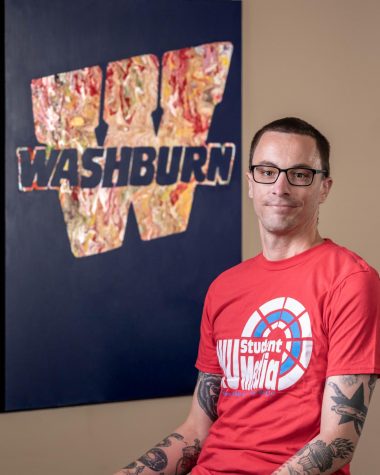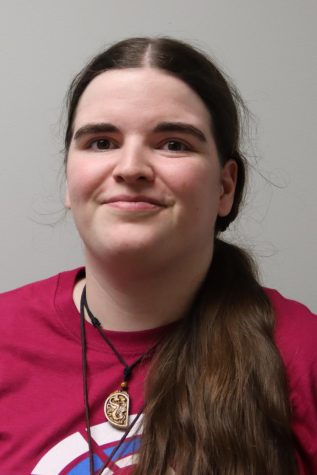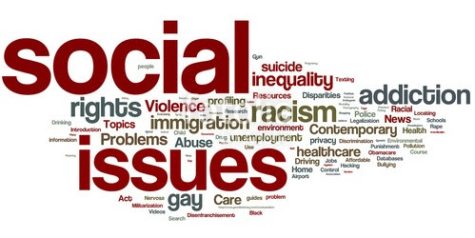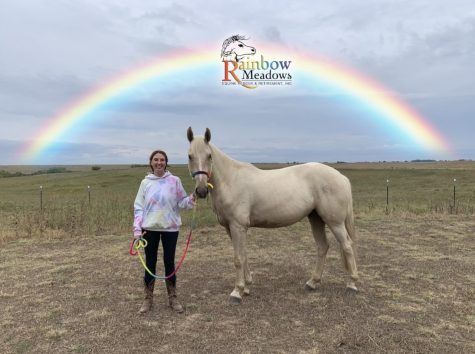Statewide Tilford Conference addresses disparity among students
The Michael Tilford Conference on Diversity and Multiculturalism was held Oct. 6-7, 2022, at Washburn University.
Several dozen professors from universities in Kansas and two other states were on campus to participate in workshops and discuss their work at the conference. The conference is named in honor of Michael Tilford, who was a founding member of the Kansas Board of Regents Diversity and Multiculturalism Committee in 1996.
The research presented will help attendees continue to advance diversity, equity, inclusion and belonging in Kansas education so that the full promise of Brown v. Board of Education may one day be realized.
Keynote addresses were delivered by Royel Johnson from the University of Southern California and Alex Red Corn from Kansas State University.
Johnson, who has authored two books, spoke about shifting away from what he calls “deficit mindsets” to more “equity-oriented mindsets.”
“Most of our students’ success is predicated on this idea that in order to be successful at our campus, they have to integrate academically and socially to white-normed environments,” Johnson said. “Some educators wrongly interpret a student’s disengagement as a sign that they don’t care about education. Is it that they don’t care or is it that we haven’t created conditions such that they feel they belong and feel compelled to be engaged?”
Red Corn, the executive director of the Kansas Association for Native American Education, also spoke about the importance of land acknowledgements and how to make them meaningful.
KANAE states on its website that a land acknowledgement “explores the history of the land you currently occupy … and offers recognition, representation and inclusion of current and past Indigenous populations.”
For 50 years, land acknowledgments by institutional organizations have become increasingly more common in Australia, Canada and the United States. Critics from all backgrounds have labeled them as hollow and performative.
“Do you actually want to improve learning about Indigenous peoples and nations? Or are you just trying to check a diversity box?” Red Corn said. “To go beyond the acknowledgement and make them meaningful, we need to have action to go with it.”
Most universities have celebrations, speaker series and identity-based groups which aim to close the cultural gap.
“All of those things are important,” Johnson said. “But they’re not sufficient for addressing the institutional structures that make those programs important in the first place.”
Earlier this year, the Kansas Board of Education formed the Kansas Advisory Council for Indigenous Education to create change. One of the first orders of business is to get schools with offensive mascots and imagery to retire these practices.
“Some folks are privileged to come to campus every day with no consideration of what happens in the world,” Johnson said. “When Black students are protesting statues that honor white men with ties to slavery, they too are raising questions that get to the essence of what it means to belong to a place that doesn’t seem to respect or value your identity.”
Red Corn said KANAE is asking critical questions about student access to teachers and Indigenous languages in Kansas institutions. They are also uncovering how students are invisible to their institutions and work to inform them about the programs and laws stemming from the federal trust responsibility.
“How are we preparing faculty, staff and students – especially those who are white – to interact and collaborate with minoritized students across race, gender, sexual orientation and other marginalized identities?” Johnson said. “So that they’re not reducing belonging for students?”
No university in Kansas governed by the Board of Regents has made an official land acknowledgement, though several schools and organizations within them have posted their own available online.
Edited by LeSha’ Davis, Glorianna Noland
Your donation will support the student journalists of Washburn University. Your contribution will allow us to purchase equipment and cover our annual website hosting costs.



































